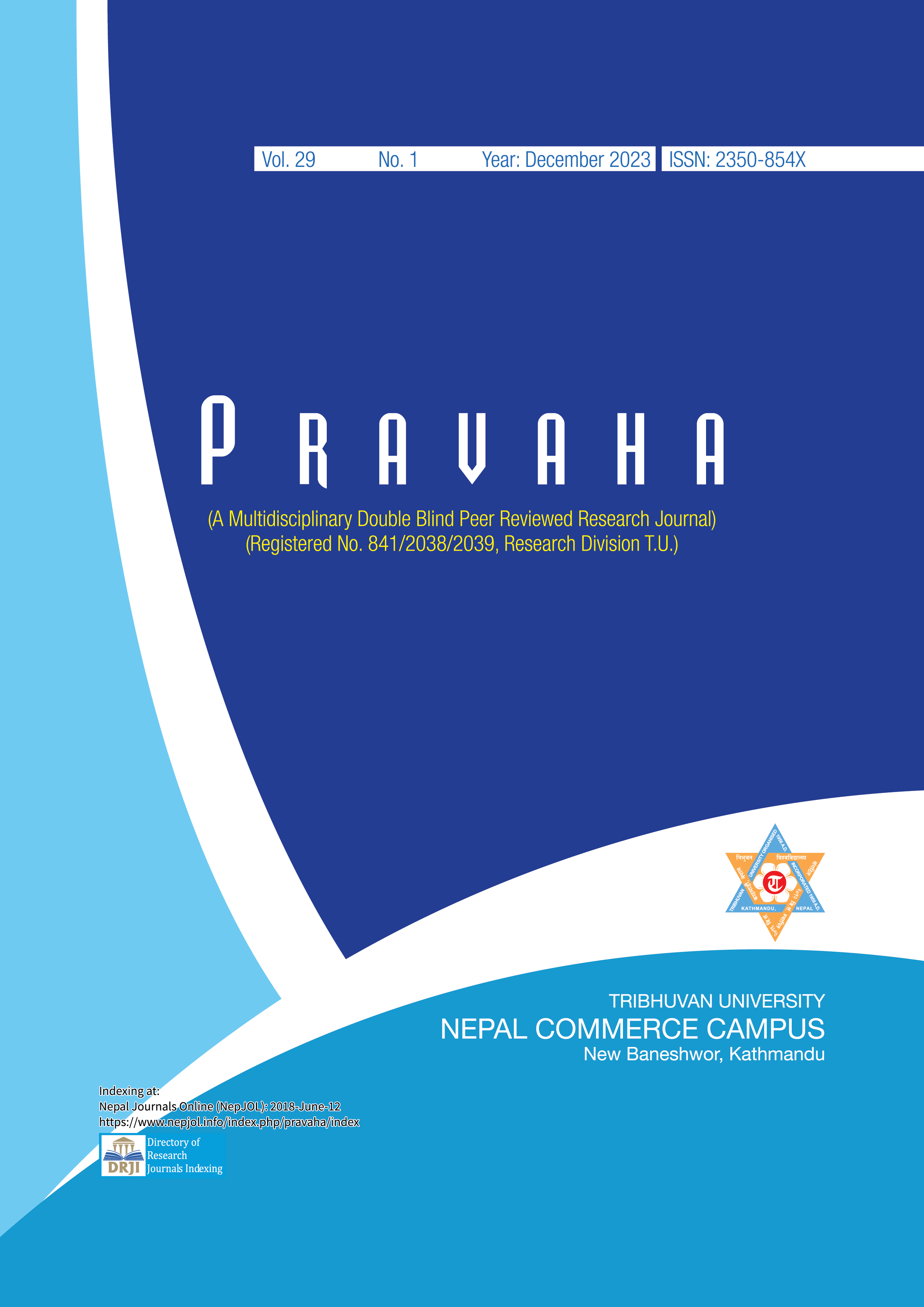Human Resource Management Practices and Performance Outcomes: The Case of Service Sector Institutions
DOI:
https://doi.org/10.3126/pravaha.v29i1.71404Keywords:
HRM practices, Productivity, Innovation, Employee turnover, Performance outcomesAbstract
This paper aims to investigate the state of HRM practices service sector institutions and to analyze the impact of such practices on performance outcomes including productivity, innovation, labor turnover, and employee conflict. Twenty-three service sector institutions including financial institutions, airlines, telecommunication, and hotels were taken into account for research work. The institutions selected for study include both public and private sectors. A total of 494 questionnaires were distributed, only the responses of 426 questionnaires (86.23%) are used in this study as they are in usable form. The results of the correlation study showed that, although HRM practices and policies have a negative link with labor turnover and employee conflict, they have a good relationship with productivity and innovation. Regression study suggests that HRM practices and policies have an effect on labor turnover and employee conflict, but they also seem to have a favorable effect on productivity and innovation. It is anticipated that this study will be beneficial in examining HRM practices and their consequences on the organization and employee performance in the service sector institutions of Nepal.
Downloads
Downloads
Published
How to Cite
Issue
Section
License
© Nepal Commerce Campus, TU
Authors are required to transfer their copyright to the Nepal Commerce Campus, TU.




